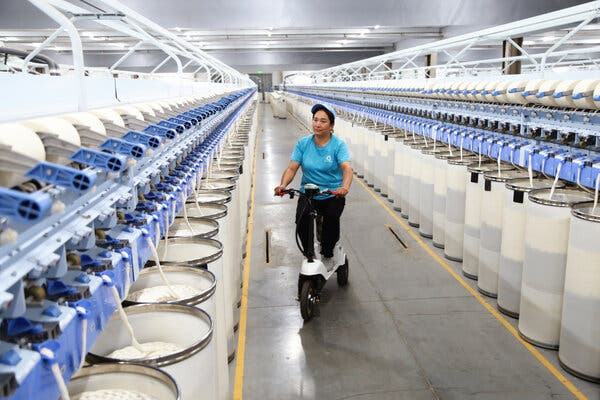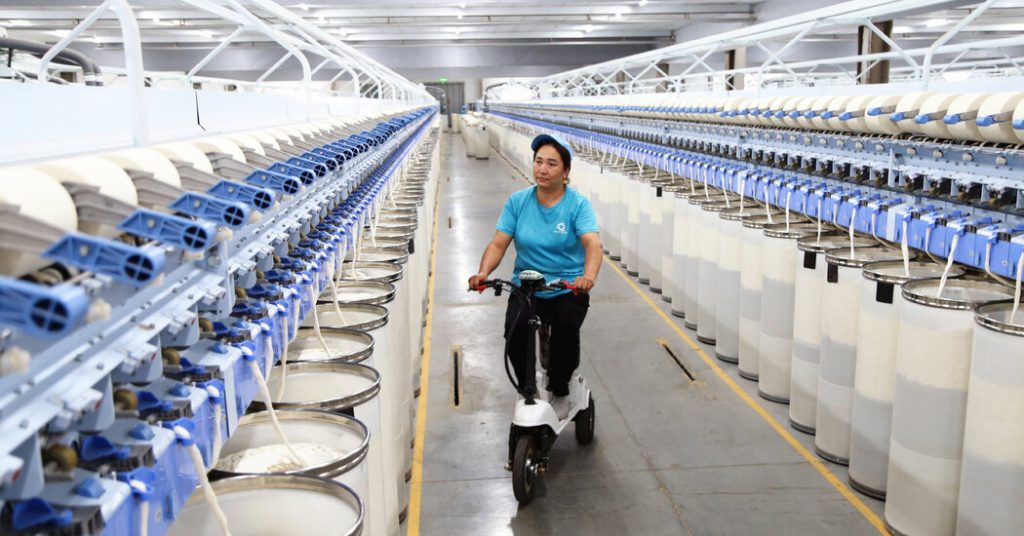Advertisement
SKIP ADVERTISEMENT
Supported by
SKIP ADVERTISEMENT
For Companies in China, Pulling Out of Xinjiang Poses ‘Messy Dilemma’
Beijing’s investigation of the parent of Calvin Klein and Tommy Hilfiger, which stopped buying goods from Xinjiang, has put global firms in a difficult position.

Keith Bradsher and Ana Swanson
Keith Bradsher reported from Beijing, and Ana Swanson from Washington.
An investigation by China of an American clothing retailer has escalated concerns among foreign companies about their dependence on Chinese supply chains and the future of their operations in the country.
China’s Ministry of Commerce said last week that it was investigating PVH, the corporate parent of the Calvin Klein and Tommy Hilfiger brands, for allegedly taking “discriminatory measures” against products from Xinjiang, a region in China’s far west that produces a fifth of the world’s cotton.
At issue is whether PVH violated Chinese law by pulling back from purchasing cotton or garments from Xinjiang, where researchers have cited evidence of forced labor, mass arrests and confinement to re-education camps among the region’s predominantly Muslim ethnic groups, particularly the Uyghurs.
The investigation has made clear that China will not tolerate companies that shun Xinjiang. That puts some multinationals in a legal vise grip because a growing number of governments, including the United States and the European Union, restrict or ban imports from Xinjiang.
The case is the first time Beijing has wielded a rule it put in place four years ago, known as the Unreliable Entity List, against a company for complying with another country’s prohibition on goods from Xinjiang.
“Since this investigation is the first of its kind, companies in all sectors have been forced to reassess what it means for them,” said Sean Stein, the chairman of the American Chamber of Commerce in China. “Many are seeing higher risk,” he added.
We are having trouble retrieving the article content.
Please enable JavaScript in your browser settings.
Thank you for your patience while we verify access. If you are in Reader mode please exit and log into your Times account, or subscribe for all of The Times.
Thank you for your patience while we verify access.
Already a subscriber? Log in.
Want all of The Times? Subscribe.
Advertisement
SKIP ADVERTISEMENT
Source: https://www.nytimes.com









More Stories
India Plane Crash: What Investigators Might Examine
Washington Post Cancels Ad From Groups Calling for Trump to Fire Musk
As Trump Attacks D.E.I., Some on the Left Approve